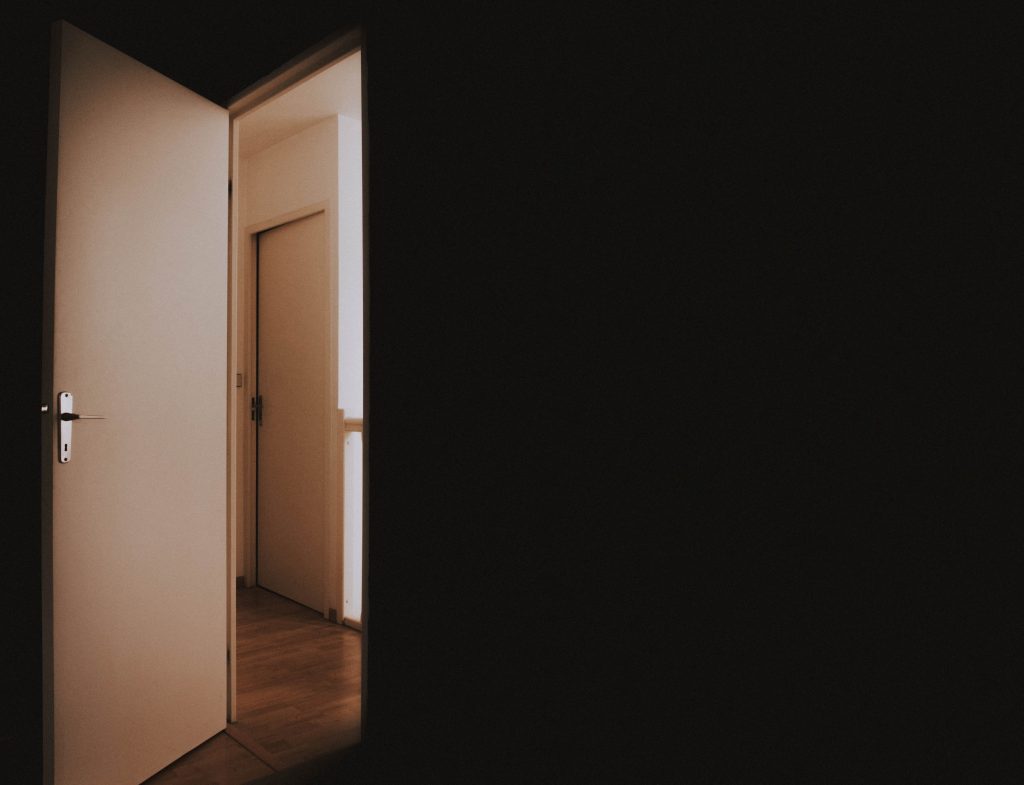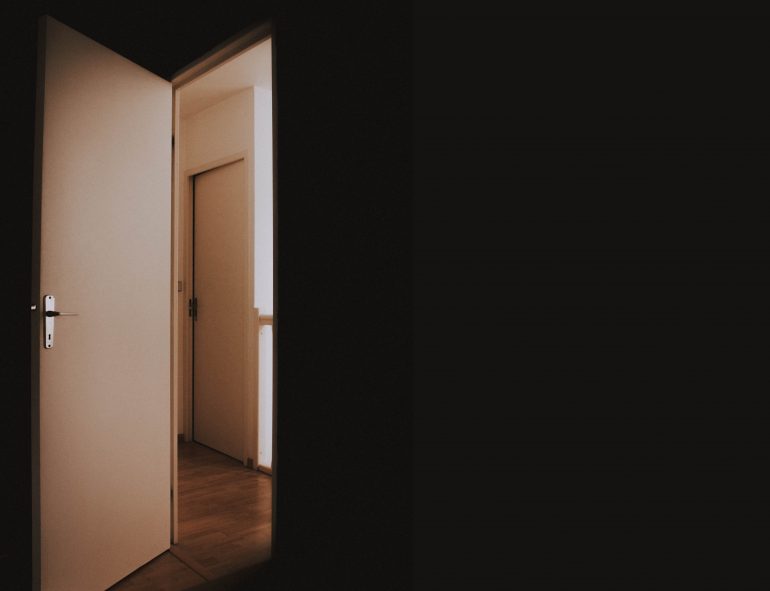Ellen Rhudy

The new roommate was not personable. All we knew about her was that she worked for a company whose app we all used to make rent, that she developed the parts of their product we could not see. “Huh,” she said when we praised the app’s graphics; she told us she had never worked in frontend, which lacked prestige. That was our longest conversation. We saw her twice a day at most, edging from her bedroom to the kitchen or bathroom. She seemed to eat only one food preparation, a mixture of rice and lentils she would fry and top with an egg. We had to hold a house meeting about it because she never washed the frying pan. She was never available for these conversations, but also never seemed to leave the apartment. We often wondered whether she was even there, as we stood before her door with breath held, waiting for a sneeze or tinny jangle of laptop music, waiting for a sign of life.
Nothing about it was ideal, but she paid her share of the rent. Paid more than her share of the rent, if we were being honest, which we only were in whispers and when we felt sure she wasn’t in ear’s distance—when we were sprawled at the park, or crowded at the beer garden, or texting as we waited for our next assignments from the app. We must have been out, in one of these places, when she began the formal separation of her space. A partition wall dividing the living room, a new apartment door next to our own. “#262.5” read the plaque. The two doors sat so snug that there was only a jamb of wood between them, and inside the apartment we tried to understand how the square of her room had been lifted so neatly from our floorplan while remaining in every sense overlaid.
We learned she had stopped paying rent only when our landlord sent a certified letter to warn that we were now short $2500 across two months, a figure he embellished to $2725 for “interest and difficulties.” One day he measured our rooms as if performing a magic trick, whipping his handkerchief free to reveal penciled calculations equaling to the same square footage as before. The new roommate refused to answer when we knocked, and even stationed before #262.5’s door we couldn’t capture her comings or goings. Bore holes drilled through the living room wall revealed nothing but more wall. On occasion, we still found a lentil-studded frying pan soaking in the sink. Our landlord kept coming, too, refusing to acknowledge the half-apartment biting into our own or the fact that we had lost one of four bedrooms described in the lease. “It’s a dog eat dog world,” he was fond of saying, and “I didn’t get to where I am by dilly-dallying.” He owned a half-dozen apartment buildings and offered to find us a unit that better fit our budget, though there’d be a fine for breaking the lease.
It was hard to make a decision. We didn’t have the money for any of it, either moving or staying. The app settings updated to allow customers to rescind tips up to a month after we delivered their orders, making our income even less reliable—or maybe more reliable, only in the wrong direction. When we pressed our ears to the wall we imagined we could hear her sitting in her room doing the things she did in her room. Maybe we could imitate her, we thought, eking out a hidden loft or requisitioning a portion of hallway, taking space that would never be missed. Only we would do one better than her, we wouldn’t number the doorway—we would disguise ourselves as a utility closet, or a forgotten staircase. Life in the city had always been difficult, and a home traversed on belly would be no harder than all the rest, was what we figured. Only then three men came to carry our furniture to the street, and her door’s plaque had changed to read “Staircase C,” and there was no longer time or space for our plans. We sat on our sofa on the curb and imagined the roommate hearing strangers on the other side of her wall. Would she miss us? Would she realize anything had changed? New plans needed formulation, but the truth was we could only wait: for a new assignment from the app; for a moving truck to arrive; for a glimpse at the new tenants who would only, it turned out, look the same as we once had.
Ellen Rhudy lives in Columbus, where she’s an MFA candidate at The Ohio State University. Her fiction has previously appeared in Monkeybicycle, as well as Story, Cream City Review, and Hobart. She’s currently working on a collection of stories and a novel. You can find her at ellenrhudy.com, or on twitter at @EllenRhudy.


